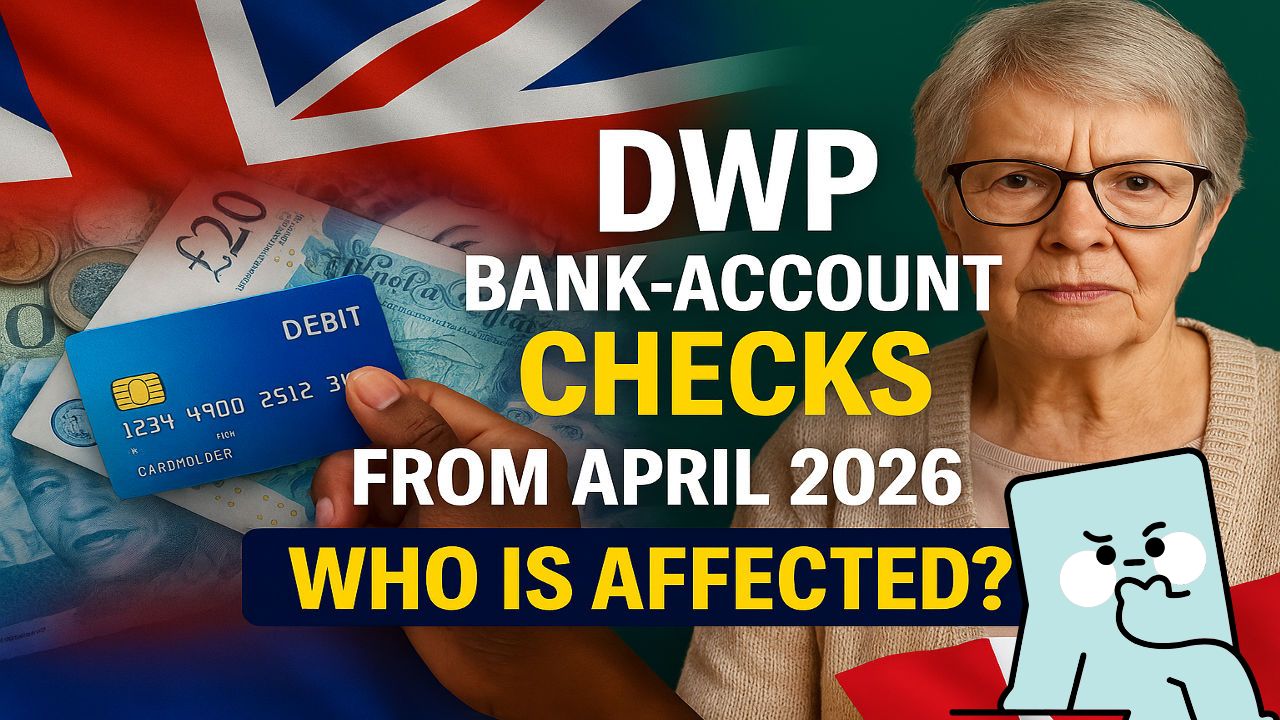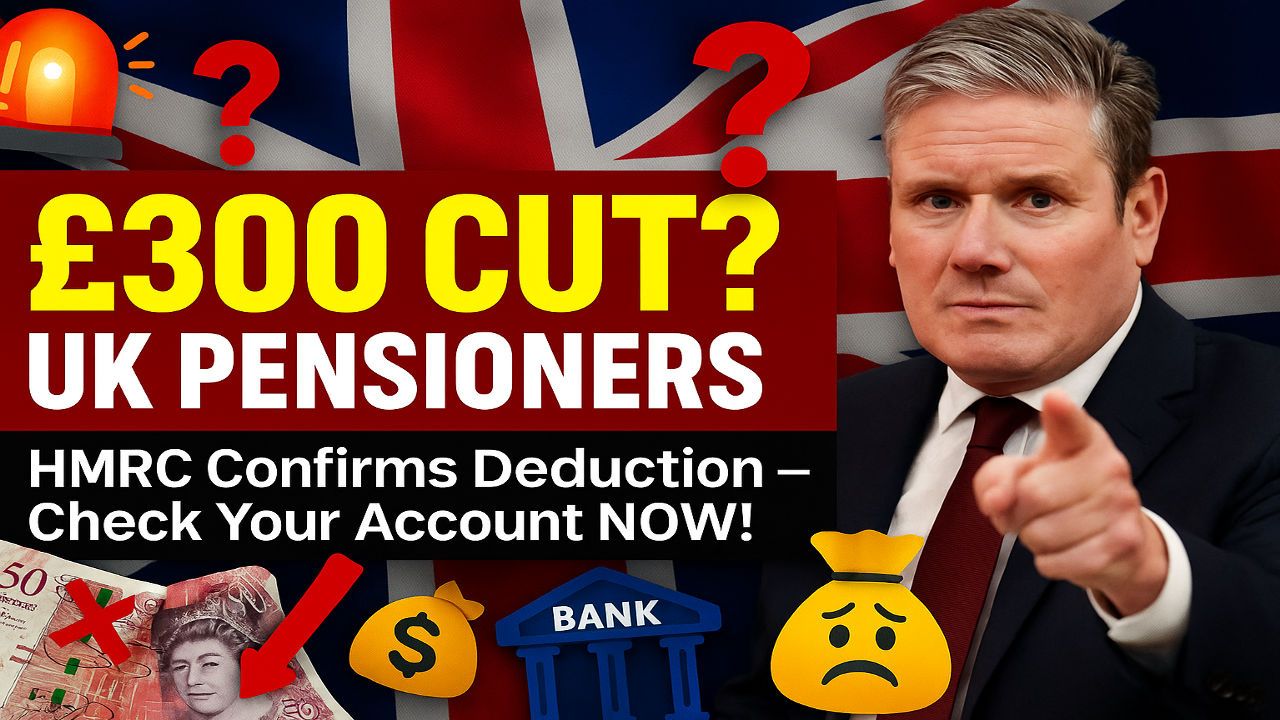From April 2026, the Department for Work and Pensions (DWP) will gain statutory powers to request limited, targeted data checks from banks and other financial institutions. The goal is to identify eligibility indicators for example, savings over a benefit’s capital limit on accounts that receive certain means-tested benefits. These powers sit within the Public Authorities (Fraud, Error and Recovery) Bill and are designed to focus on correcting incorrect payments, not on day-to-day surveillance of claimants.
Under the scheme, DWP may issue an Eligibility Verification Notice (EVN) to a bank. The bank then runs automated checks to detect pre-defined risk markers (such as balances consistently above thresholds). If a marker is present, the bank returns a flag. DWP staff decide whether further evidence is needed and whether to open a case. No automatic benefit decisions are made from a bank flag alone.
DWP bank-account checks from April 2026 Quick summary
Topic |
Key points |
|---|---|
Start date |
New powers planned to begin April 2026, with phased rollout thereafter. |
What DWP can do |
Issue Eligibility Verification Notices to banks to identify indicators that a claimant may no longer qualify for a means-tested benefit. Not for fishing expeditions. |
What DWP cannot do |
No routine access to full statements or itemised spending; banks send flags/indicators, not purchase histories. A human reviews cases before action. |
Who is exempt |
People receiving only the State Pension; the measure does not cover State Pension accounts. |
Benefits in scope |
Primarily means-tested support such as Universal Credit, Housing Benefit, income-based JSA, income-related ESA, Income Support, Pension Credit, Council Tax Support (and legacy tax credits during transition). |
Why it’s happening |
To reduce fraud and error estimated £9.7bn overpaid in 2023–24 while improving value for taxpayers. |
Oversight |
Code of Practice laid before Parliament, purpose limits, independent scrutiny, and gradual rollout to 2031. |
Official information |
UK Government factsheet: DWP eligibility-verification powers under the Public Authorities (Fraud, Error and Recovery) Bill. (GOV.UK) |
State Pension claimants are excluded
If you receive the State Pension only, your account will not be included in these data-matching requests. Ministers have confirmed the exclusion of State Pension from the new powers, meaning ordinary pension payments are outside scope. Mixed-benefit households remain subject to the rules for any means-tested elements (for example, Pension Credit).
Why the change? The fraud-and-error backdrop
Fraud and error in benefit expenditure remain a material risk. Government statistics show £9.7 billion of overpayments in 2023–24 (3.7% of total spend), with the majority attributable to fraud. Parliament and the National Audit Office have highlighted the need for more effective, privacy-conscious controls. The new EVN model seeks to reduce losses while limiting data to what is strictly necessary.
Which benefits are affected?
The powers target means-tested benefits those that depend on income and capital. Expect coverage to include (as schemes transition):
- Universal Credit
- Housing Benefit
- Income Support
- Income-based Jobseeker’s Allowance (JSA)
- Income-related Employment and Support Allowance (ESA)
- Pension Credit
- Council Tax Support
- Legacy Tax Credits during migration to Universal Credit
Details are set out in the government factsheet and will be refined in the Code of Practice before the first notices are issued.
What will and will not be shared
Will be shared (in limited, rule-based form):
- Whether predefined eligibility indicators exist (for example, capital above a threshold; signs of an undisclosed account).
- Minimal identifiers to match an account to a claimant for eligibility checking.
Will not be shared:
- Itemised transactions or a list of where you shop.
- General access to your full bank statements without further legal basis.
- Automated sanctions; a human must review any alert.
How the process will work (step by step)
- Targeting: DWP identifies a benefit cohort and issues an EVN to participating banks strictly for the purpose of confirming eligibility.
- Bank screening: The bank runs automated checks for narrow indicators set out in the Code of Practice.
- Flagging: If an indicator is found, the bank sends a yes/no flag back to DWP no spending details.
- Human review: DWP caseworkers review the alert, consider context, and may request evidence from the claimant.
- Outcome: If a discrepancy is confirmed, DWP may adjust the award, set up an overpayment recovery plan, or close the case if eligibility is established.
Safeguards and oversight
- Purpose limitation: EVNs can only be used to identify incorrect payments of relevant benefits.
- Code of Practice: Must be consulted on and laid before Parliament before any notice is used; it will set out proportionality, targeting, data minimisation, and redress.
- Human in the loop: No automatic termination or sanction solely from a bank flag.
- Phased rollout: Implementation will be staged between 2026 and 2031, with evaluation and reporting to Parliament.
Practical implications for different groups
- State Pension-only households: No change your pension account is not in scope.
- Pension Credit recipients: Your Pension Credit is means-tested and may be included in checks, but only for eligibility indicators; ordinary State Pension receipts remain out of scope.
- Universal Credit and other means-tested recipients: Keep details up to date (savings, income, partner changes) to avoid overpayments that might later be recovered.
Official site and where to read the rules
- UK Government factsheet on DWP eligibility-verification powers under the Public Authorities (Fraud, Error and Recovery) Bill (includes Code of Practice commitments and limits).
FAQs
Will the DWP see what I buy or where I shop?
No. Banks return only a flag if a narrow eligibility indicator is present. Transaction histories and spending details are not shared under the EVN system. A human reviews any flag before a decision.
Are State Pension recipients affected?
If you receive only the State Pension, you are excluded from these bank-check powers. Mixed claims that include means-tested benefits (for example, Pension Credit) can be checked for those benefits.
Which benefits are most likely to be checked?
Means-tested ones, particularly Universal Credit, Housing Benefit, income-related ESA/JSA, Income Support, Pension Credit, and Council Tax Support. The Code of Practice will confirm scope and process.
When does this begin?
From April 2026, with a measured rollout over several years.
Why is the government doing this?
To reduce fraud and error (for example, £9.7bn overpayments in 2023–24) and protect public finances while maintaining privacy safeguards.
Can DWP take money from my account automatically?
DWP can recover overpayments, but there are processes and limits (such as repayments from benefit awards or agreed plans). The EVN flags alone do not trigger automatic deductions.
What if I think a flag is wrong?
You can provide evidence to show eligibility. Decisions can be challenged through mandatory reconsideration and appeal channels.
Bottom line
Beginning April 2026, DWP will use targeted, limited bank checks to verify eligibility for means-tested benefits. State Pension-only claimants are exempt. The system is built around data minimisation, a public Code of Practice, and human review not automated decisions or scrutiny of personal spending. If you receive means-tested support, the best protection is simple: keep your details accurate and up to date, respond promptly to evidence requests, and retain records that show you meet the rules.
For More Information Click HERE













